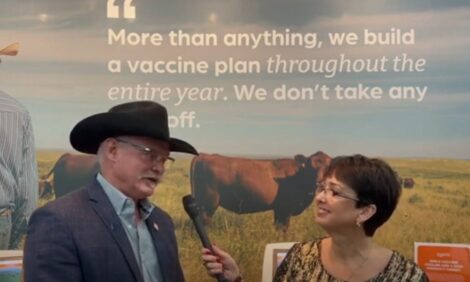



Companies’ zero-deforestation commitments could halve cattle-driven deforestation in Brazil's Amazon
Better adoption and implementation of company supply chain policies for Brazilian beef, leather could reduce carbon emissionsCattle-rearing is the biggest cause of tropical deforestation in the Amazon - and the world.
A study has found that some of the world’s largest slaughterhouses reduced cattle-driven deforestation in the Amazon by 15% - equivalent to sparing 7,000km2 of forest from clearance (4.5 times the size of London) - through their commitment to zero-deforestation policies between 2010 and 2018.
If these policies were fully implemented and adopted across all cattle companies operating in the Amazon, 24,000km2 of forest (an area larger than Wales) could have been spared over this time, effectively halving cattle-driven deforestation in Brazil.
Deforestation is the second largest contributor to global greenhouse gas emissions after fossil fuel use, and the Brazilian Amazon is the world’s deforestation hotspot.
Zero-deforestation commitments are supply chain policies aiming to ensure production of goods does not involve deforestation, by identifying and dropping suppliers who produce on areas recently cleared of natural vegetation. The commitments have been signed by many leading UK beef retailers, including the supermarkets Tesco, Sainsbury’s, and Waitrose.
Although the UK imported 60 million tonnes of Brazilian beef in 2017, according to the National Beef Association the UK is 75% self-sufficient for beef. Many British companies are increasingly turning away from Brazilian beef due to the perceived risk of deforestation. But the researchers argue that this is not the best approach.
“We can benefit the climate by eating less meat in general. But when it comes to deforestation, the solution is not to avoid beef from specific countries – because then we lose our power to make a difference in those places,” said Professor Rachael Garrett, Moran Professor of Conservation and Development at the University of Cambridge Conservation Research Institute, senior author of the report.
She added: “If we do eat imported beef, we should buy it from retailers that are trying to improve cattle production systems in Brazil and elsewhere. If enough countries join the UK and EU in purchasing only deforestation-free beef it’s likely to have a positive impact on the planet by reducing deforestation.”
The results are published today in the journal Global Environmental Change.
Due to the complexity of Brazilian supply chains and incomplete availability of public records, it has been challenging until now to determine how much of the cattle in any given region was being purchased by companies with zero-deforestation commitments. This impeded efforts to analyse the effectiveness of zero-deforestation policies linked to beef and leather goods - such as shoes and handbags.
The researchers traced the links between farming regions, slaughterhouses and companies with zero-deforestation commitments in the Brazilian Amazon cattle sector, to see how these links influenced deforestation.
An agreement called G4 is the most widespread and strongly implemented zero-deforestation commitment for cattle in the Brazilian Amazon – accounting for over 99% of cattle exports. The study focused on companies that have adopted the G4 Agreement, and found they were associated with substantial reductions in deforestation.
“We’ve shown that zero-deforestation policies are having an important - and measurable – impact in protecting forests, and that with widespread adoption and rigorous implementation they could achieve a lot more,” said Garrett.
She added: “Even reducing deforestation by 15% is a huge amount. But this result shows that supply chain policies have significant limitations, and we need to couple them with more visionary approaches to help countries like Brazil improve their agricultural systems.”
The researchers say a mix of interventions by the private and public sector is needed to improve cattle-rearing practices and help eliminate deforestation in countries like Brazil.
Public sector interventions could include support for alternative economic activities, and financial incentives or greater pressure to avoid deforestation from the Brazilian government.
“With this evidence, supermarkets can use their influence to help improve Brazilian cattle production. But more needs to be done to improve the rigour of corporate policies and the market coverage of policy adopters, even in relatively well-covered regions such as the Brazilian Amazon,” said Dr Sam Levy at ETH Zurich and New York University, lead author of the report.
Cattle production for beef and leather is the cause of over 70% of all deforestation in the Amazon – much of which is illegal. Zero-deforestation commitments cover 82% of beef exported from the Brazilian Amazon for trade internationally – but a large amount of beef production destined for Brazil’s domestic markets is not covered.
Deforestation causes the loss of diverse animal and plant life, threatens the livelihoods of indigenous groups, and increases inequality and conflict.
In 2021, the COP26 Glasgow Leaders’ Declaration on Forests and Land Use committed to halt and reverse deforestation by 2030. It was signed by over 100 countries, representing 85% of global forests.
The research was funded by the National Science Foundation, Gordon and Betty Moore Foundation, and the European Research Council.


